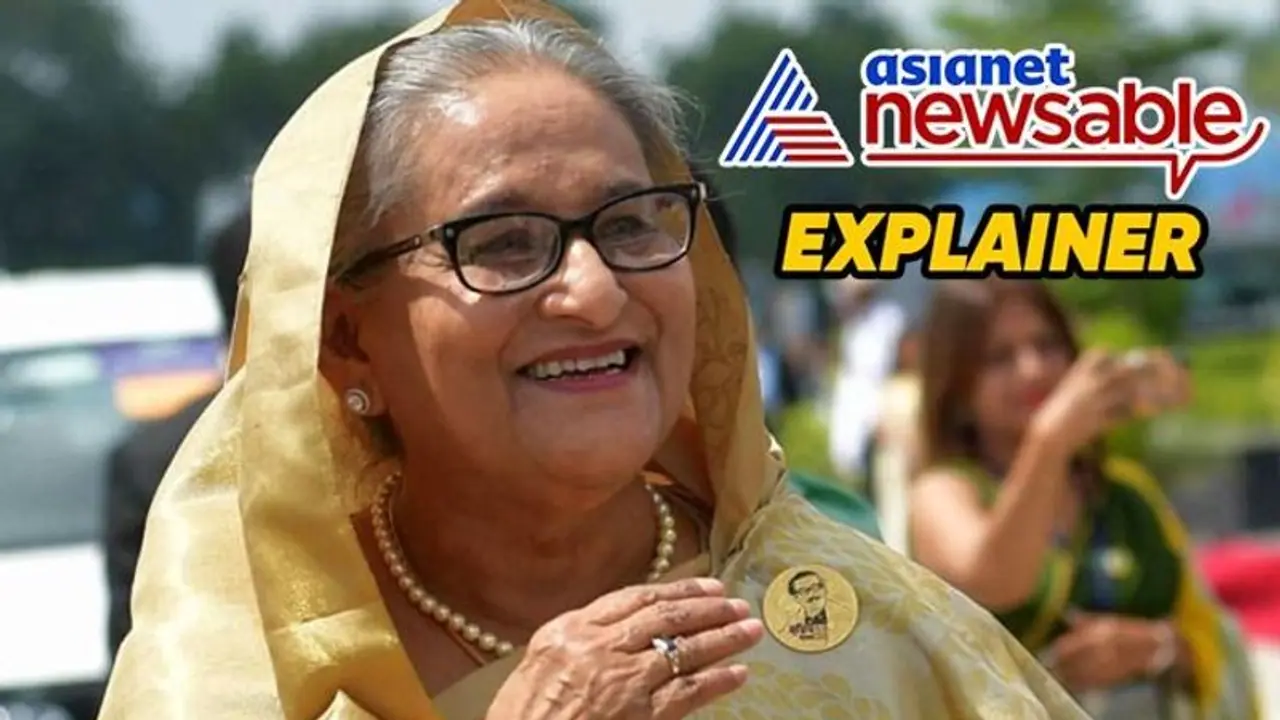As Bangladesh approaches its 2024 election, the country is embroiled in protests, violence, and political turmoil. Prime Minister Sheikh Hasina's bid for a fourth term faces intense opposition from parties like the BNP and the Jamaat-e-Islami, leading to widespread discontent and escalating tensions. Girish Langanna reports
As Bangladesh hurtles toward its 2024 election, the nation finds itself ensnared in a web of protests, violence, and political upheaval. The fourth term pursuit by Prime Minister Sheikh Hasina, amidst a backdrop of intense opposition from parties like the BNP and the Jamaat-e-Islami, sets the stage for a critical moment in the country's political history.

Protests and Escalating Violence
Protests across Bangladesh, notably in districts like Chattogram, Dhaka, Chandpur, Ghazipur, Sylhet, Noakhali, and Bogura, signal a deep-rooted discontent within the populace. Opposition parties, particularly the BNP and the Jamaat-e-Islami, have escalated the situation by imposing a 48-hour blockade. This move sparked chaos, resulting in the destruction of vehicles and a passenger train at Tangail Railway Station, leaving numerous passengers and drivers injured.
Opposition's Demands and Election Boycott Threat
The Opposition, spearheaded by the BNP, vehemently demands the resignation of Prime Minister Hasina. Central to their demands is the establishment of a neutral caretaker government, echoing a requirement initially raised by Jamaat-e-Islami in June. The 2011 Supreme Court ruling, challenging the handover of power to an unelected caretaker administration, adds a legal dimension to the Opposition's stance. With the threat of an election boycott looming, the political atmosphere becomes increasingly charged.
Government's Measures for Fair Elections
In response to past electoral controversies, the Awami League government has implemented a series of legal measures to ensure fair elections. The introduction of Electronic Voting Machine Rules in 2018, the Delimitation of Constituencies Act in 2021, and the Chief Election Commissioner and Election Commissioners Appointment Act in 2022 aim to foster an unbiased and capable election commission. Amendments to conduct rules for political parties and candidates further underline the government's commitment to enhancing the fairness, inclusivity, and credibility of elections.
Opposition's Stand and International Scrutiny
The Opposition's refusal to participate in the January 2024 election unless their demands are met raises concerns about the democratic process. The situation draws international attention, particularly from the United Nations Human Rights Office of the High Commissioner (UNHRC).
The UNHRC's report, released on October 31st, expresses deep concerns about violent incidents during ongoing protests and calls for unequivocal condemnation from political actors.
US Sanctions and Global Players' Perspectives
The United States, a vocal advocate for democratic elections, took a decisive step by imposing sanctions on seven high-level officials of Bangladesh's Rapid Action Battalion in 2021. The sanctions, aimed at holding officials accountable for alleged human rights abuses, underscore the global ramifications of Bangladesh's political turmoil. The European Union's announcement that budget constraints prevent sending a full election observer team further adds weight to the Opposition's concerns about the fairness of the electoral process.
In contrast, major trading partners China and India exhibit more measured responses. While expressing a desire for free and fair elections, China emphasizes support for the Bangladesh government against external interference. India, cognizant of the delicate regional dynamics, cautions against excessive pressure, recognizing Bangladesh's strategic importance in stabilizing the region.
Economic Implications and Regional Stability
The economic implications of the political turmoil are significant. The US sanctions impact Bangladesh's Ready Made Garment (RMG) industry, a crucial sector representing 21.50 per cent of total exports. The EU's decision not to send a full election observer team amplifies concerns about the potential fallout on the country's economic stability.
Moreover, regional stability becomes a focal point in the diplomatic discourse. Bangladesh's fast-paced economic growth, strategic location connecting South and Southeast Asia, and oversight of important shipping routes in the Bay of Bengal position it as a key player in the Indo-Pacific region. The internal conflicts within Bangladesh hold the potential for adverse implications, not just for the country itself but for the broader regional landscape.
Election Preparation and Credibility Concerns
Amidst the tumultuous political landscape, the Awami League attempts to project optimism, confident of its legal measures and the absence of a prominent opposition figure. The Election Commission released a detailed schedule, appointing 66 returning officers and 592 assistant returning officers. Chief Election Commissioner Kazi Habibul Awal pledges to create a favourable environment for free and fair elections in all 42,000 polling stations and 262,000 booths.
However, doubts persist about the practical implementation of these measures given the volatile ground situation. The deadline for submitting nomination papers has passed, and the selection of candidates occurred between December 1st and 4th. The withdrawal of candidates is allowed until the 17th of this month, with the allocation of symbols scheduled for December 18. The campaign period will run until 8 am on January 5, 2024.
As Bangladesh navigates this critical juncture, the convergence of internal strife, international scrutiny, and economic ramifications paints a complex picture. The 2024 election stands as a pivotal moment, where the nation's democratic resilience is tested against the backdrop of global geopolitical dynamics.
